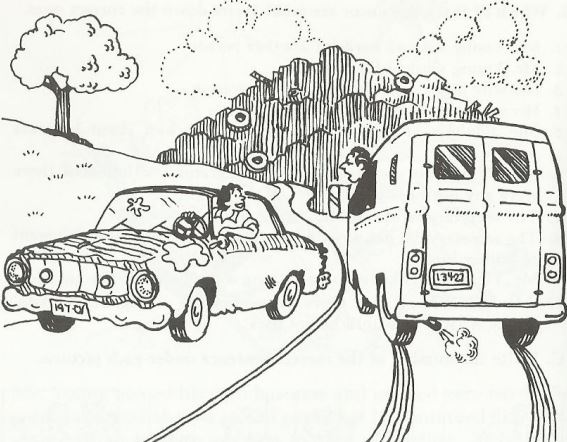

Grammar


Tenses


Present

Present Simple

Present Continuous

Present Perfect

Present Perfect Continuous


Past

Past Simple

Past Continuous

Past Perfect

Past Perfect Continuous


Future

Future Simple

Future Continuous

Future Perfect

Future Perfect Continuous


Parts Of Speech


Nouns

Countable and uncountable nouns

Verbal nouns

Singular and Plural nouns

Proper nouns

Nouns gender

Nouns definition

Concrete nouns

Abstract nouns

Common nouns

Collective nouns

Definition Of Nouns

Animate and Inanimate nouns

Nouns


Verbs

Stative and dynamic verbs

Finite and nonfinite verbs

To be verbs

Transitive and intransitive verbs

Auxiliary verbs

Modal verbs

Regular and irregular verbs

Action verbs

Verbs


Adverbs

Relative adverbs

Interrogative adverbs

Adverbs of time

Adverbs of place

Adverbs of reason

Adverbs of quantity

Adverbs of manner

Adverbs of frequency

Adverbs of affirmation

Adverbs


Adjectives

Quantitative adjective

Proper adjective

Possessive adjective

Numeral adjective

Interrogative adjective

Distributive adjective

Descriptive adjective

Demonstrative adjective


Pronouns

Subject pronoun

Relative pronoun

Reflexive pronoun

Reciprocal pronoun

Possessive pronoun

Personal pronoun

Interrogative pronoun

Indefinite pronoun

Emphatic pronoun

Distributive pronoun

Demonstrative pronoun

Pronouns


Pre Position


Preposition by function

Time preposition

Reason preposition

Possession preposition

Place preposition

Phrases preposition

Origin preposition

Measure preposition

Direction preposition

Contrast preposition

Agent preposition


Preposition by construction

Simple preposition

Phrase preposition

Double preposition

Compound preposition

prepositions


Conjunctions

Subordinating conjunction

Correlative conjunction

Coordinating conjunction

Conjunctive adverbs

conjunctions


Interjections

Express calling interjection

Phrases

Sentences


Grammar Rules

Passive and Active

Preference

Requests and offers

wishes

Be used to

Some and any

Could have done

Describing people

Giving advices

Possession

Comparative and superlative

Giving Reason

Making Suggestions

Apologizing

Forming questions

Since and for

Directions

Obligation

Adverbials

invitation

Articles

Imaginary condition

Zero conditional

First conditional

Second conditional

Third conditional

Reported speech

Demonstratives

Determiners


Linguistics

Phonetics

Phonology

Linguistics fields

Syntax

Morphology

Semantics

pragmatics

History

Writing

Grammar

Phonetics and Phonology

Semiotics


Reading Comprehension

Elementary

Intermediate

Advanced


Teaching Methods

Teaching Strategies

Assessment
Which way
المؤلف:
L.A Hill
المصدر:
Intermediate anecdotes in American English
الجزء والصفحة:
22-1
15/9/2022
1046

A small town had a city dump where people could leave their own garbage. A lot of people used to load their garbage cans into the backs of their cars and take them to the dump to get rid of them, instead of waiting for them to be collected from their homes or offices.
One evening the owner of a store in this town put his garbage cans in his van and drove to the dump. He had just left his garbage there, when a young man arrived in a very old, beat-up car, turned around, drove backwards down the hill where the garbage was piled and unloaded his.
While he was doing this, the engine of his car died. He tried to start it again several times, but he wasn't successful, so he finally said to the driver of the van, "Could you please give my car a push?"
"Which way?" the man answered.
A. Answer these questions:
- What did a lot of people do with their garbage cans?
- What was the young man's car like?
- What did he do when he came to the garbage dump?
- Why couldn't he drive away again?
- What did the young man ask the driver of the van to do?
- What did the driver answer?
B. Which of these answers are true? Write down the questions and the correct answers.
1. How could a person get rid of his garbage in the small town?
- Only by taking it away himself.
- Only by waiting for it to be collected.
- Either by taking it away himself, or by waiting for it to be collected.
2. How did the owner of the store get rid of his garbage?
- He walked to a dump with it and left it there.
- He drove to a dump with it and left it there.
- He left it outside his store to be collected.
3. Why couldn't the young man drive away after he left his garbage?
- Because the engine of his car wouldn't start.
- Because there was a hill in front of his car.
- Because there was a pile of garbage in front of his car.
4. What did he want the driver of the van to do?
- To push his car away from the garbage.
- To push his car down the hill.
- To push his car into the pile of garbage.
C. Write this story, putting one word in each blank space. You will find all the correct words in the story.
People throw away more ________ now than ever before in our history. What a waste it is! Our ______ cans fill up faster than anyone can _________them on to trucks to take them away, but luckily I am the _________ of a small van, and when I want to get _________ of my garbage, I can put the cans in it and take them away myself. I don't have to wait for them to be ________ from my home.
At first I didn't know of a __________where I could take them, and_______ around for days to find one. _______I was ________ in finding one. I was really happy when I _________ my first cans there, and drove away.
 الاكثر قراءة في Intermediate
الاكثر قراءة في Intermediate
 اخر الاخبار
اخر الاخبار
اخبار العتبة العباسية المقدسة

الآخبار الصحية















 قسم الشؤون الفكرية يصدر كتاباً يوثق تاريخ السدانة في العتبة العباسية المقدسة
قسم الشؤون الفكرية يصدر كتاباً يوثق تاريخ السدانة في العتبة العباسية المقدسة "المهمة".. إصدار قصصي يوثّق القصص الفائزة في مسابقة فتوى الدفاع المقدسة للقصة القصيرة
"المهمة".. إصدار قصصي يوثّق القصص الفائزة في مسابقة فتوى الدفاع المقدسة للقصة القصيرة (نوافذ).. إصدار أدبي يوثق القصص الفائزة في مسابقة الإمام العسكري (عليه السلام)
(نوافذ).. إصدار أدبي يوثق القصص الفائزة في مسابقة الإمام العسكري (عليه السلام)


















